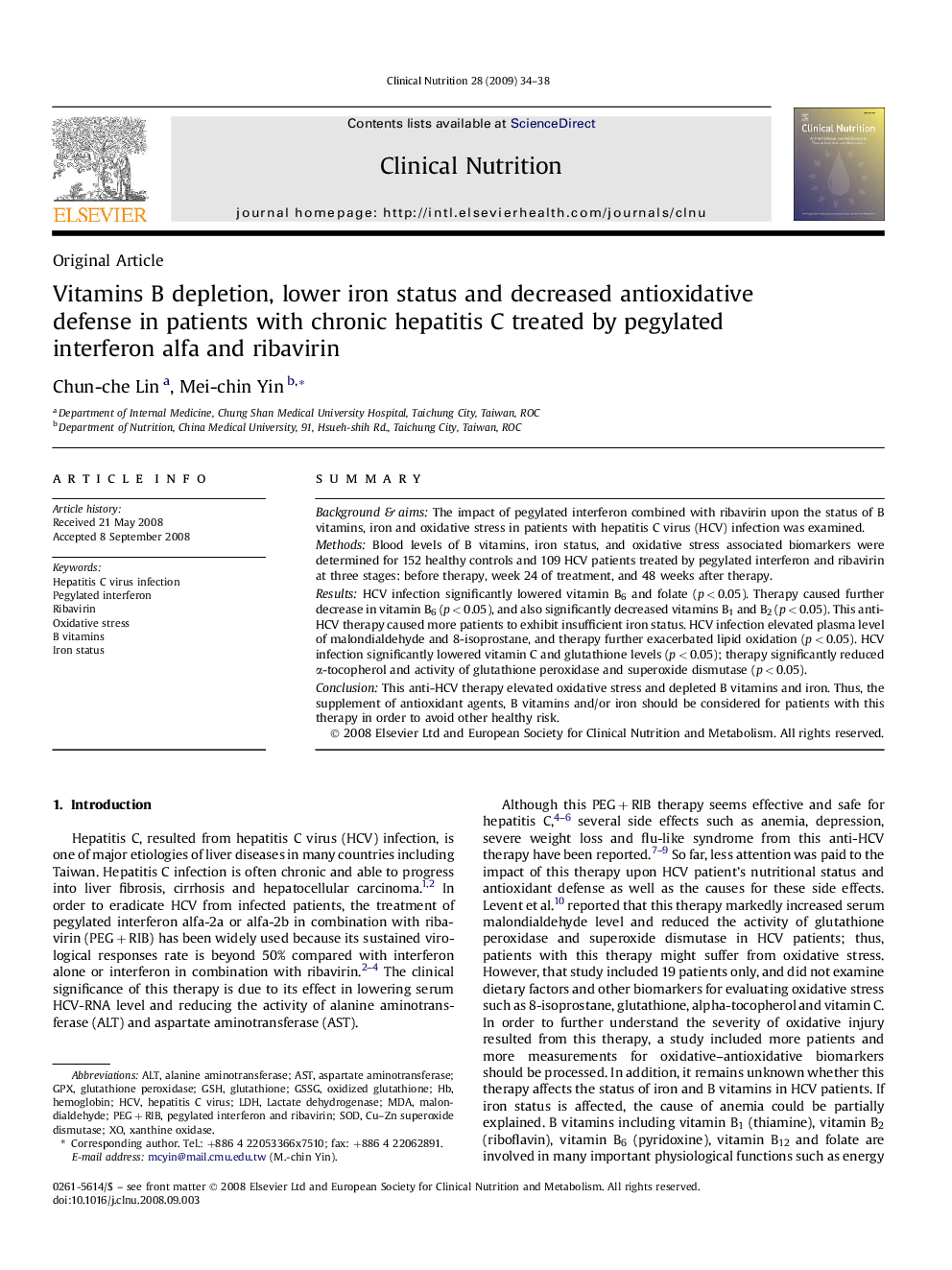| Article ID | Journal | Published Year | Pages | File Type |
|---|---|---|---|---|
| 2689938 | Clinical Nutrition | 2009 | 5 Pages |
SummaryBackground & aimsThe impact of pegylated interferon combined with ribavirin upon the status of B vitamins, iron and oxidative stress in patients with hepatitis C virus (HCV) infection was examined.MethodsBlood levels of B vitamins, iron status, and oxidative stress associated biomarkers were determined for 152 healthy controls and 109 HCV patients treated by pegylated interferon and ribavirin at three stages: before therapy, week 24 of treatment, and 48 weeks after therapy.ResultsHCV infection significantly lowered vitamin B6 and folate (p < 0.05). Therapy caused further decrease in vitamin B6 (p < 0.05), and also significantly decreased vitamins B1 and B2 (p < 0.05). This anti-HCV therapy caused more patients to exhibit insufficient iron status. HCV infection elevated plasma level of malondialdehyde and 8-isoprostane, and therapy further exacerbated lipid oxidation (p < 0.05). HCV infection significantly lowered vitamin C and glutathione levels (p < 0.05); therapy significantly reduced α-tocopherol and activity of glutathione peroxidase and superoxide dismutase (p < 0.05).ConclusionThis anti-HCV therapy elevated oxidative stress and depleted B vitamins and iron. Thus, the supplement of antioxidant agents, B vitamins and/or iron should be considered for patients with this therapy in order to avoid other healthy risk.
